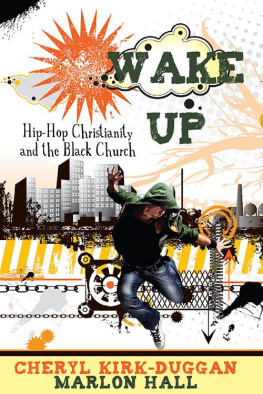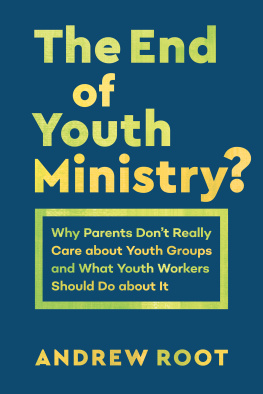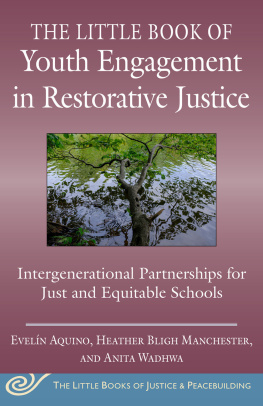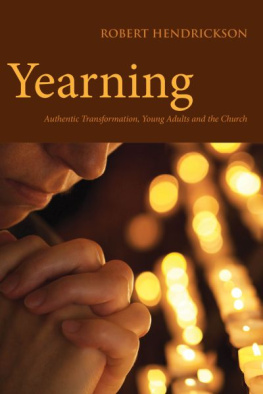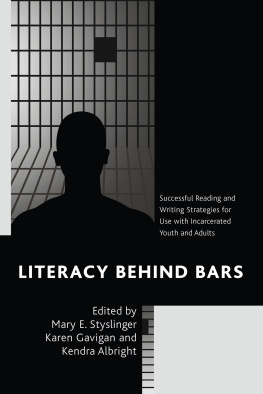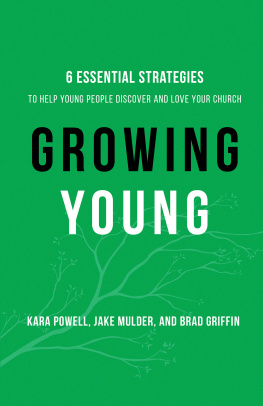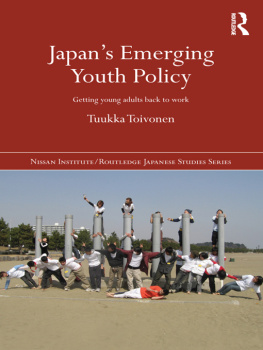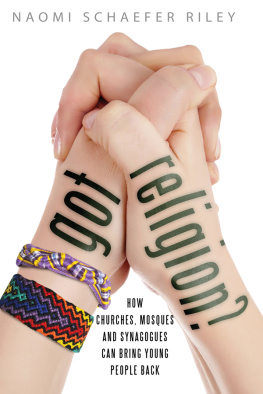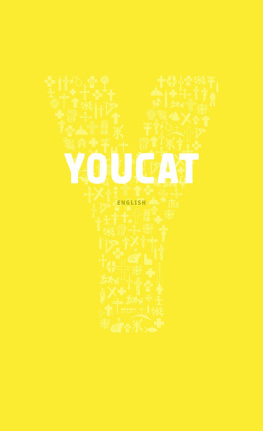Wake Up!
Hip Hop Christianity and
the Black Church
Cheryl Kirk-Duggan
and
Marlon Hall
Abingdon Press
Nashville
WAKE UP!
HIP HOP CHRISTIANITY AND THE BLACK CHURCH
Copyright 2011 by Abingdon Press
All rights reserved.
No part of this work may be reproduced or transmitted in any form or by any means, electronic or mechanical, including photocopying and recording, or by any information storage or retrieval system, except as may be expressly permitted by the 1976 Copyright Act or in writing from the publisher. Requests for permission should be addressed to Permissions, The United Methodist Publishing House, P.O. Box 801, 201 Eighth Avenue South, Nashville, TN 37202-0801, or e-mailed to permissions@umpublishing.org.
This book is printed on acid-free paper.
Library of Congress Cataloging-in-Publication Data
Kirk-Duggan, Cheryl A.
Wake up! : hip-hop Christianity and the Black church / by Cheryl Kirk-Duggan and Marlon Hall.
p. cm.
Includes bibliographical references.
ISBN 978-1-4267-0301-0 (pbk. : alk. paper)
1. African American youthReligious life. 2. Hip-hopReligious aspectsChristianity. I.
Hall, Marlon. II. Title.
BR563.N4K585 2011
248.408996073dc22
2010054429
All scripture quotations are taken from New Revised Standard Version of the Bible, copyright 1989, Division of Christian Education of the National Council of the Churches of Christ in the United States of America. Used by permission. All rights reserved.
11 12 13 14 15 16 17 18 19 2010 9 8 7 6 5 4 3 2 1
MANUFACTURED IN THE UNITED STATES OF AMERICA
To the bards, young and not so young,
whose contributions in the form of Hip Hop
made this volume possible
To our immediate, intimate sojourners,
who've listened, encouraged,
and loved us well
Contents
Preface
It's Bigger Than Hip Hop
Divine synchronicity, human curiosity, and a commitment to creativity framed by faith launched the inception, process, and creation of Wake Up! Hip Hop Christianity and the Black Church. This collaborative project brought together the lived experiences of Marlon Hall and Cheryl Kirk-Duggan. Hall, a missionary, columnist, anthropologist, filmmaker, and pastor, helped found The Awakenings Movement, a grassroots Christian church and movement that holds worship in coffee shops, art galleries, and bars in Nairobi, Houston, and Detroit. The Awakenings Movement is designed to challenge and equip ordinary people to live extraordinary lives through the love and power of Christ. Hall grew up in Hip Hop culture as a participant and an observer, living and loving its music. Interdisciplinary scholar/minister/musician Cheryl A. Kirk-Duggana prolific author, preacher, professor, poet, performer, prophet, and priestcame to Hip Hop as a professor/ learner. Synchronicity emerged during the spring of 2008, when one of Kirk-Duggan's students, then-Minister Leon Parker, came to her asking if she would teach a class on Hip Hop. She responded that if he could get eight people to sign up for the course, she would teach it as a readings course in fall 2008. In the summer of 2008, Abingdon Press editor Kathy Armistead phoned Kirk-Duggan and asked her if she would be interested in writing a book on Hip Hop. Kirk-Duggan initially stated that she had already made a commitment to say no to any new projects. However, since she had just agreed to teach a course on Hip Hop, she was willing to invest in the project.
Armistead went on to introduce Kirk-Duggan to Hall by emailing a couple of articles written from Hall's column in Outreach Magazine, Awakening Faith, which talked about his passion for people and his work at Awakenings as a "cultural provocateur": one who provokes culture from a life of mediocrity to dream, believe, and then live out his dreams. One article stated how the Awakenings Movement community is a group of "Social Visionaries who are called by God to make an indelible mark on humanity that no one can erase. Our community is a dynamic Christ-Centered movement that discovers God in unorthodox public settings. At Awakenings, we learn to excavate God's extraordinary presence from the remnants of ordinary life and spaces. This movement allows us to share the never changing story of Christ's life, love, death, and resurrection to an ever-changing world." Curiosity was ever present once Kirk-Duggan's interest as a musician and scholar was piqued earlier when she wrote an article, "The Theopoetic Theological Ethics of Lauryn Hill and Tupac Shakur," for the volume Creating Ourselves: African Americans and Latino/as, Popular Culture, and Religious Expression, edited by Anthony Pinn and Ben Valentine (Durham, N.C.: Duke University Press, 2009). Students' curiosity moved the course with engaged and creative dialogue, which brought in speakers and a local radio producer. Mid-semester, Hall spoke to the Hip Hop class via teleconference. Kirk-Duggan revised her course content in conversation with Hall, and they crafted the table of contents and began the writing process. The two have yet to meet face to face.
For the dialogue partners, the process has been one of growth and discovery. Hall's mission and anthropological study in Kenya and work in the Awakenings community have supported his commitment to this project. Kirk-Duggan's work with her students and the interest that arises when she talks about the project have fueled her joy in this venture. Both authors acknowledge that music has always been central to the African and African diasporan lived experience, central to community, worship, and praise. Historically, traditional African people did not have a sense of performing music for others; music was participatory. Both writers were primed to engage in this work as a next step in their understanding of who God wants them to be and how they are to engage in ministry in the worlds of the church and the academy.
Hall's most memorable experience of hearing "It's Bigger Than Hip-Hop," by underground rap group Dead Prez, was in a crowded movie theater while watching Dave Chappelle's concert documentary, Block Party. "It's Bigger Than Hip-Hop" is a song that honors a movement in music that has become a culture. Hall and his friends were all stuffed in a movie theater, and not one seat was open. Dead Prez slowly and deliberately walked onto the stage, and as soon as the first few chords of the song were heard, everyone in the movie audience stood as if the film screen had come to life and they were experiencing a concert in real time. Some jumped, others bounced, but everyone stood to honor this musical anthem that lyrically celebrates the potential of Hip Hop music as a cultural phenomenon and not just a fad marked by gold teeth and baggy pants.
M1, a member of Dead Prez, once described Hip Hop as one word with two meanings. The music is "Hip" because it is sensitive and vulnerable to relevant issues and "Hop" because it is a dynamic movement not bound by conventional processes and practices. This music has its finger on the pulse of human possibility and pain. Hip Hop is a viral phenomenon that has reached an internationally diverse populace in a matter of years.
In many ways, this is like the movement of Christ. In a matter of years, a message of love, redemption, and self-sacrifice became a cultural phenomenon. The good news of God in the flesh moved across continents in a matter of years. From Africa to Asia to Europe, what began as a message became a movement.
For Hall, no phenomenon has the potential to mirror the gospel of Christ like Hip Hop. The church of Christ and the Hip Hop movement share a passion for human interest and sensitivity to human pain. They have an influence that stretches like a rubber band beyond cultural contexts, continents, and time. When it comes to human development, they have a connection that is indivisible and a future that is undeniable.

